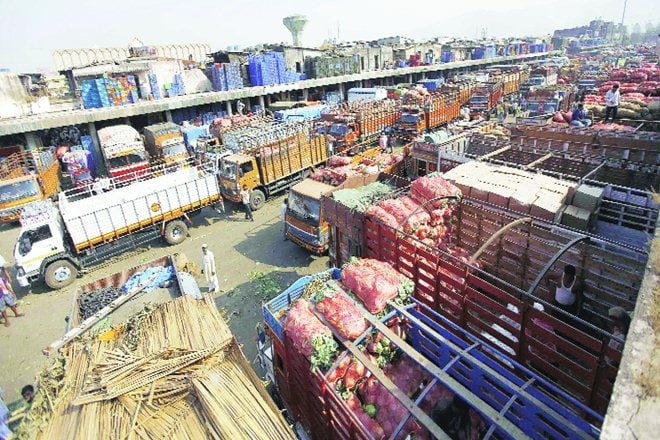In a move aimed at decongesting mandis and maintaining supply chains of fruits and vegetables, the Centre on Thursday added two new features on the electronic national agriculture market (e-NAM) platform to make it more convenient for farmers to sell their produce at warehouses and collection centres set up by farmer producer organisations (FPOs).
Agriculture minister Narendra Singh Tomar launched the new features of e-NAM which will strengthen agriculture marketing and reduce the need for farmers to physically come to mandis for selling their produce. The warehouse-based trading module in e-NAM software will facilitate trading from the premises of warehouses based on negotiable warehouse receipts in electronic form (e-NWR), while the other module will allow farmers get access to the e-NAM platform from collection centers of FPOs.
“There is a critical need to decongest mandis to effectively fight against Covid-19. These two software modules will provide additional options for farmers to sell their crops,” an official said.
As many as 585 mandis in 16 states are already connected under e-NAM, which was launched by the government in 2014. Another 415 mandis will soon be brought under the platform, Tomar said. When any mandi is connected to e-NAM, it provides a trading platform within its premise as an additional medium to farmers, apart from the traditional commission agent system.
Only warehouses, accredited by the Warehousing Development and Regulatory Authority (WDRA) will be eligible to offer the trading services once the states notify them as deemed markets, the agriculture ministry said in a statement. So far, Telangana (14 warehouses) and Andhra Pradesh (23 warehouses) have declared designated warehouses as deemed markets.
“The additional option will definitely help farmers to access the e-NAM platform through warehouses as they can keep the produce and sell later when they think prices will be higher, since the storage cost is very low,” said Kedar Deshpande, CEO of National E-Repository, which manages eNWRs in warehouses. Even small farmers can take loan against eNWRs, usually up to 75% of the value of crops, at concessional interest rate of 7% to meet their immediate needs, he said. The eNWR charge is normally around Rs 25/tonne for a period not exceeding the normal shelf life of the crop.
The FPO trading module will help these organisations upload their produce from their premises or collection centres for bidding. They can upload the assaying report and picture of the produce and quality parameters to help bidders, even outside the state, to see the produce before bidding.
FPOs have the option for delivery of produce either from their premise or by bringing to mandi premise after successful bidding. This will not only decongest mandis but also reduce the logistics cost for FPOs.

